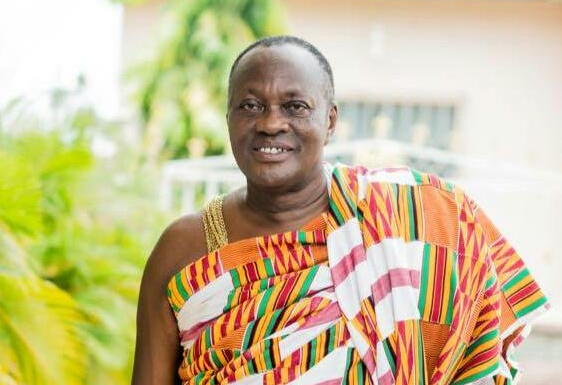
Council of State issues first-time report
This report is the first ever produced to highlight the work of a Council of State to commemorate its first year in office. It contains many of the activities undertaken by the seventh Council of State in its first year of existence.
The report takes readers through the constitutional development of the Council of State, with its historical antecedents provided in an appendix.
Advertisement
It highlights the mandate and legal framework within which the Council of State operates. It explains the Council’s membership composition; its procedures and committees as well as the foci of their activities and meetings.
Committees
The seventh Council of State works through three Standing Committees: the Appointments and House Affairs Committee (AHAC); the Legal, Constitutional Affairs and Petitions Committee (LCAPC); and the Economy and Special Development Initiatives Committee (ESDIC).
In addition, it constituted two ad-hoc committees with specific tasks during the year under review.
These were the Special Committee on the Council of State’s new office building project and the Publicity and Editorial Committee.
Interactions
The report finally provides a peep into the Council’s various interactions with the President, Nana Addo Dankwa Akufo-Addo, some ministers of his government and other stakeholders during the period under review.
Ultimately, the seventh Council of State seeks to make itself and its activities more visible to the public and to bridge the gap between the two important stakeholders.
Introduction
This first report of the Seventh Council of State of the Fourth Republic of Ghana highlights the events, issues and activities carried out by the Council after it was inaugurated by the President on February 27, 2017. It is important to state, at the onset, that this is the first time a report has been issued after just one year of a Council’s existence.The report covers the Council’s first year in office from February, 2017 to February, 2018.
Specifically, the report places on record the intensive briefings, meetings, interactions, approval of appointments and consultations with the President, Ministers of State and heads of public institutions.
Shortly after its inauguration, the Council unanimously elected Nana Otuo Siriboe II, Omanhene of Asante Juaben, as its chairman. At its very first meeting, the Council was resolute to position itself as an independent body in order to discharge its functions as stipulated under the 1992 Constitution of the Republic of Ghana.
Provisions
The Council reminded itself of provisions of Chapter 9, Article 89, of Ghana’s Constitution that the Council of State is to “counsel the President in the performance of his functions”.
It extensively discussed its mandate and the posture it was going to adopt in fulfilling that. As part of its mandate, the Council is expected to: “Consider and advise the President or any other authority in respect of any appointment which is required by the Constitution or any other law to be made in accordance with the advice of, or in consultation with the Council of State. Also, “upon request, or on its own initiative, the Council of State is to consider or make recommendations on any matter being considered or dealt with by the President, a Minister of State, Parliament, or any other authority established by the Constitution.”
In Article 91 (4) the Constitution highlights the extensive nature of the scope of the Council’s mandate. It states that the Council shall “perform such other functions as may be assigned to it by the Constitution or any other law not inconsistent with the Constitution.”
The above provisions underline the importance of the Council of State and the unique place it occupies in Ghana’s current governance arrangement. It is important to emphasise that through its advisory role, the Council is expected to bring the collective wisdom and rich experiences of its members to bear on the work of Government and State institutions.
Information
The onstitution further provides that the Council of State shall hold its meetings in-camera, at least, four times in a year.
The restriction of in-camera sitting seeks to protect the confidentiality of advice given by the Council to the President, ministers of State and other heads of public institutions.
The meetings of the Council may, however, be opened to the public when considered appropriate.
Extending the Council’s activities into the public domain is to ensure broader consultations and the needed flexibility in the process of information gathering by the Council.



